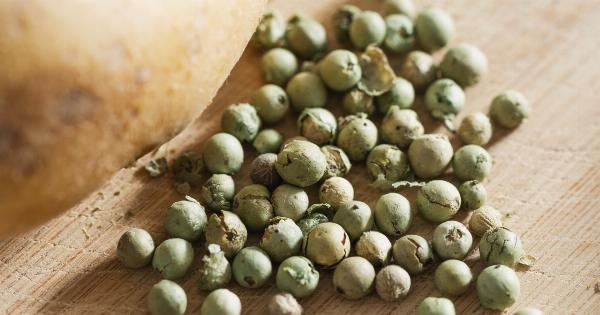Rheumatoid arthritis is a chronic autoimmune disease that affects millions of individuals worldwide. It occurs when the immune system mistakenly attacks the body’s own tissues, leading to inflammation and pain in the joints.
While the exact cause of rheumatoid arthritis is still unknown, research suggests that certain spices may play a role in either triggering or exacerbating the symptoms of this condition.
The Link Between Spices and Rheumatoid Arthritis
Spices have long been used for their flavor enhancement and medicinal properties. However, some spices contain compounds that can potentially trigger inflammation and cause discomfort for individuals with rheumatoid arthritis.
It is important for individuals with this condition to be aware of which spices to avoid and which to incorporate into their diet in moderation.
Spices to Avoid
1. Cayenne Pepper: This fiery spice contains capsaicin, which may worsen inflammation and pain in individuals with rheumatoid arthritis. It is best to avoid cayenne pepper or any dishes that contain this ingredient.
2. Paprika: Similar to cayenne pepper, paprika also contains capsaicin and should be avoided by those with rheumatoid arthritis.
3. Turmeric: While turmeric has gained popularity for its anti-inflammatory properties, some individuals with rheumatoid arthritis may have a sensitivity to this spice.
It is recommended to consult with a healthcare professional before incorporating turmeric into your diet.
4. Cumin: Cumin contains a compound called cuminaldehyde, which may promote inflammation in certain individuals. It is best to limit the consumption of cumin if you have rheumatoid arthritis.
5. Nutmeg: Nutmeg contains eugenol, which has been shown to have pro-inflammatory effects. It is advisable to avoid nutmeg or dishes that contain this spice to prevent exacerbation of rheumatoid arthritis symptoms.
Spices to Incorporate in Moderation
1. Ginger: Ginger has been used for centuries for its anti-inflammatory properties. While it may be beneficial for some individuals with rheumatoid arthritis, it is important to consume ginger in moderation, as excessive amounts may have adverse effects.
2. Cinnamon: Cinnamon is known for its antioxidant and anti-inflammatory properties. However, individuals with rheumatoid arthritis should be cautious as excessive consumption may trigger symptoms.
3. Garlic: Garlic contains sulfur compounds that have been shown to have anti-inflammatory effects. Incorporating garlic into your diet in moderation may provide some relief for rheumatoid arthritis symptoms.
4. Basil: Basil is rich in essential oils with anti-inflammatory properties. While it can be used to enhance the flavor of various dishes, it is recommended to use basil in moderation.
5. Rosemary: Rosemary contains rosmarinic acid, which has been shown to possess anti-inflammatory and antioxidant properties. However, excessive consumption may lead to adverse effects, so it is best to use rosemary in moderation.
Other Considerations for Rheumatoid Arthritis
1. A Balanced Diet: In addition to spice considerations, individuals with rheumatoid arthritis should strive for a balanced diet that includes a variety of fruits, vegetables, whole grains, and lean proteins.
2. Regular Exercise: Engaging in regular exercise can help improve joint mobility and reduce inflammation. Low-impact exercises such as swimming and yoga are particularly beneficial for individuals with rheumatoid arthritis.
3. Medication: It is essential to work closely with a healthcare professional to determine the most effective medication plan for managing rheumatoid arthritis symptoms.
4. Stress Management: Stress has been shown to worsen rheumatoid arthritis symptoms. Practicing stress-management techniques, such as meditation and deep breathing exercises, can help alleviate symptoms.
Conclusion
While spices can add flavor and depth to our meals, individuals with rheumatoid arthritis need to exercise caution when incorporating spices into their diet.
Avoiding certain spices and using others in moderation can help manage inflammation and reduce symptoms. With proper diet, exercise, medication, and stress management, individuals with rheumatoid arthritis can lead fulfilling lives despite the challenges posed by this condition.































